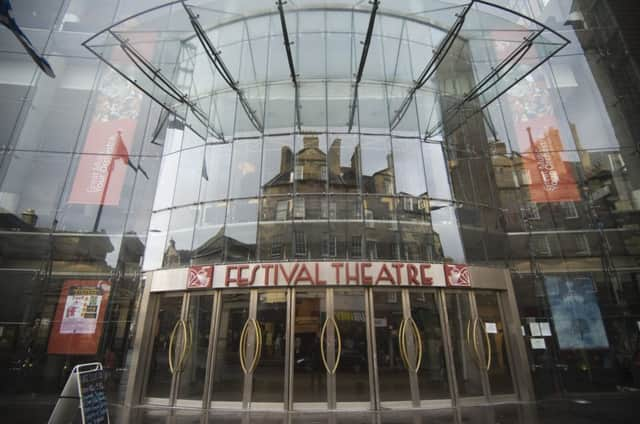Venues should look at Festival Theatre book of care


Wheelchair users often get a raw deal when it comes to theatre and cinema-going, which is why a rare positive experience shines out.
For guests and staff at Leuchie House, the Festival Theatre in Edinburgh represents a template for all other venues to follow – not just in terms of reduced rates for carers’ tickets wherever possible, but in the care and attention from staff.
Advertisement
Hide AdAdvertisement
Hide AdMuch of our work in activities involves arranging entertainment in-house, either with people coming in to entertain the guests or putting on “homegrown” quizzes, films etc. These activities are very popular, but where Leuchie House stands out is that if someone wants to have an outing to somewhere they would not usually have the chance to get to, we will bend over backwards to try and accommodate them. I just wish the venues would do so too.
Too often, wheelchair users are left with the worst seats in the house – even though they have had to pay double for the outing because many venues charge the same rate for carers’ seats as they do for the wheelchair-user’s seat.
Recent figures from VisitScotland show that in the UK as a whole, £391 million was spent in 2013 on accessible tourism, while in Scotland the figure for disposable income of disabled people stood at £16 billion. This is spending power that should not be ignored by businesses.
One of the reasons so many guests make repeat visits to Leuchie House for respite breaks is that the trips we offer to various venues and attractions are part of their stay.
These “tailor-made” outings range from museum, theatre and cinema trips in Edinburgh to local pub lunches.
For people who may be completely isolated as a result of their deteriorating condition, these outings can be a lifeline.
Many of the guests we look after have long-term physical conditions with complex care needs and it is not possible for them to sit alone for an entire performance.
This is very much recognised at the Festival Theatre, where staff go out of their way to make the whole experience very special indeed.
Advertisement
Hide AdAdvertisement
Hide AdThis is hugely important for carers taking people on an outing, as they already have the stress of transporting people with complex care needs and looking after them when they are at the venue.
The purpose of the visit – enjoying themselves – can risk being lost in all these details, which is why it is such a treat when other people are helping the visit go smoothly.
Going to the theatre or cinema can be a treat for most of us, but when you have limited mobility – and no access to transport – it is even more of a special occasion. Even where venues are not physically geared up for people in wheelchairs, the positive and welcoming attitude of staff can make all the difference. When we take people out on a trip, there are medical, transport and catering issues to be overcome before we get to the actual destination.
These alone can take hours of planning and then to go through all the preparations and not feel welcomed is a terrible blow, both for the guest and carer.
Resources such as Euan’s Guide, which offers reviews on accessibility for people with disabilities, are a huge help when planning outings.
But the venues themselves need to take mobility issues into account during staff training.
Contrast the positive experience at the Festival Theatre with some of the regular barriers that can mar a day out for wheelchair users, such as: cinema seats right at the front so you are craning your neck to see the screen or being given a carer’s seat which is too far away from the wheelchair-user’s seat to be able to assist if needed. Also a problem is charging the full cost for a carer’s seat, which can often put off a potential audience member from booking as they cannot afford the extra ticket.
There are notable exceptions of course, but they tend to be different types of venue, such as museums and art galleries and distillery tours, where there are always staff on hand as soon as they spot someone in a wheelchair.
It just takes a bit of thought and can make all the difference in the world.
• Sally Nisbet is activities co-ordinator at Leuchie House